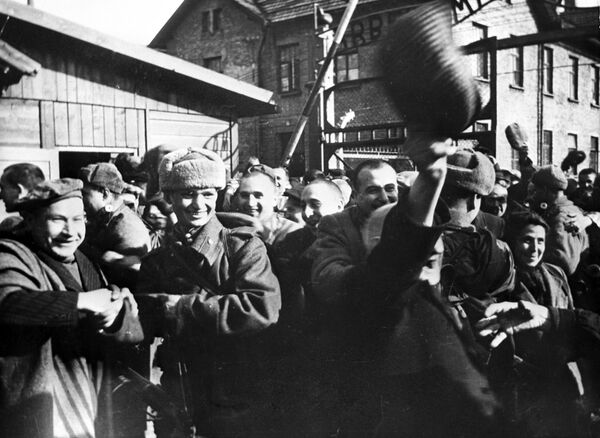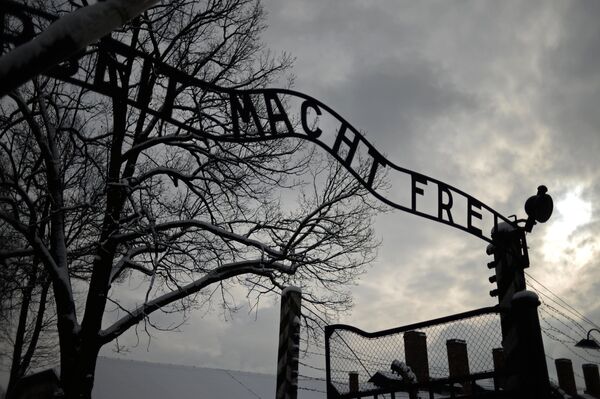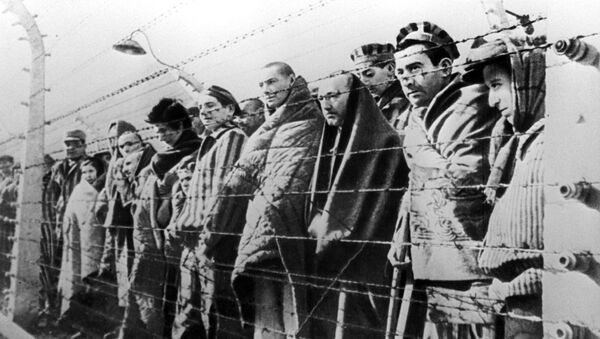Nearly three in four people in Poland know it was the Red Army that liberated Auschwitz and about two in three are grateful to Soviet troops for freeing the country from the Nazis, a new survey has found.
According to a poll of 1,000 respondents, conducted for Sputnik this month by France’s oldest polling institute, Ifop, 73 percent of Poles correctly answered that Auschwitz was liberated by the Soviet Army.
Another 15 percent said it was liberated by Polish troops, 5 percent picked the United States, and 1 percent gave the UK the credit.
Notably, respondents over 65 more commonly believe that Auschwitz, which was located in Nazi-occupied southern Poland, was liberated by the Red Army (85 percent compared with the average of 73 percent). Respondents over 35 give the correct answer more often than people in the 18 to 35 age group (76 percent vs 64 percent).

The higher the income and social status, the more respondents were likely to answer that the Red Army was responsible for liberating Auschwitz (78 percent vs 69 percent among middle-income respondents). The level of education also appeared to make a difference: 79 percent of those polled with complete higher education picked the correct answer, compared with 70 percent among those with only a secondary education.
Most supporters of centre-left and centre-right parties (74 percent and 75 percent, respectively) believe that the Red Army was the first of the Allied forces to enter the death camp. At the same time, centrists (69 percent) and those at both ends of political spectrum were a little less sure (64 percent on the right and 71 percent on the left).
The liberation of Auschwitz was part of a larger operation to drive the Nazis out of Poland and prepare the stepping stones for a subsequent offensive on Berlin.

When asked whether they were grateful to the Red Army for freeing Poland, 65 percent of respondents replied positively and 27 percent were negative.
Respondents over 35 were more likely to be grateful for the liberation (67 percent vs 60 percent in the 18 to 35 age group). The highest share of those who feel grateful (77 percent) was among those above 65 years of age.
According to the poll, the higher the level of education, the less often Poles expressed gratitude to the Red Army: 61 percent of respondents with a complete higher education were grateful, versus 68 percent with a median level of education.
Another trend showed that representatives of moderate left-wing parties appear to be the most grateful to the Red Army: 75 percent expressed the sentiment, compared with 66 percent among the centre-right and 61 percent on the right end of the range.
Russia, Poland, and World War II
Russia and Poland have been involved in a long-running spat over the beginnings of the World War II. Polish officials have publicly cast some blame for the outbreak of the war on the Soviet Union, which signed a non-aggression agreement (the so-called Molotov-Ribbentrop Pact) with the Nazis to prevent a war after failing to forge an anti-German alliance with Britain and France.
Russian President Vladimir Putin rejected the accusations and argued that Western nations’ own dealings with Adolf Hitler had led to the war. He referred to Polish Ambassador to Nazi Germany, Jozef Lipski, as an “anti-Semitic pig” who was in “complete solidarity” with Hitler.
Speaking at a Holocaust Remembrance event in Jerusalem last month, Vladimir Putin described the Nazis’ atrocities as “one of the darkest and most shameful pages of modern world history”, but added that some of their accomplices, including in Europe, were “often crueler than their masters”.
Those remarks did not single out any particular country but appeared to aim specifically at Poland, whose President Andrzej Duda skipped the memorial because he had not been invited to speak.
In 2018, Poland's parliament adopted a law that made it illegal to attribute Nazi crimes to Poles. The language of the law was softened later that year (including removal of the criminal provision that imposed jail terms) following widespread criticism from Israeli government and Jewish campaigners.
While many Poles point to the Soviet Union's complicity in the partitioning of their country in 1939, which was predicated on a desire to export the Marxist-Leninist ideology globally, Germany's plans for Poland were far more brutal than the Soviet ones. The Nazis' Generalplan Ost called for the deportation or extermination of 85 percent of the population of Poland, who were considered not suitable for 'Germanisation'. Whether to exterminate the Poles or simply disperse them in Western Siberia was a matter of debate among Nazi policymakers.


